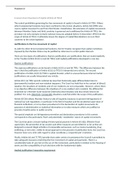-
1. Karteikarten - Jurisprudentie verbintenissenrecht
-
2. Beurteilungen - Jurisprudentie verbintenissenrecht
-
3. Zusammenfassung - Uitwerking van alle leerdoelen bij probleem 8
-
4. Zusammenfassung - Uitwerking van de leerdoelen probleem 7 verbintenissenrecht
-
5. Zusammenfassung - Uitwerking leerdoelen probleem 5 verbintenissenrecht
-
6. Zusammenfassung - Uitwerking leerdoelen probleem 4 verbintenissenrecht
-
7. Zusammenfassung - Uitwerking leerdoelen probleem 3 verbintenissenrecht
-
8. Zusammenfassung - Uitwerking leerdoelen probleem 2 verbintenissenrecht
-
9. Zusammenfassung - Uitwerking leerdoelen probleem 1 verbintenissenrecht
-
10. Zusammenfassung - Uitwerking leerdoelen probleem 6 verbintenissenrecht
-
11. Zusammenfassung - Schema rangorde schuldeisers
-
12. Zusammenfassung - Uitwerking gir leerdoelen probleem 7
-
13. Zusammenfassung - Uitwerking gir leerdoelen probleem 6
-
14. Zusammenfassung - Uitwerking gir leerdoelen probleem 5
-
15. Zusammenfassung - Uitwerking gir leerdoelen probleem 4
-
16. Zusammenfassung - Uitwerking gir leerdoelen probleem 3
-
17. Zusammenfassung - Uitwerking gir leerdoelen probleem 2
-
18. Zusammenfassung - Uitwerking gir leerdoelen probleem 1
-
19. Beurteilungen - Uitwerking van de jurisprudentie bij het vak burgerlijk procesrecht
-
20. Zusammenfassung - Uitwerking leerdoelen probleem 3 bpr
-
21. Zusammenfassung - Uitwerking leerdoelen probleem 2 bpr
-
22. Zusammenfassung - Uitwerking leerdoelen probleem 1 bpr
-
23. Zusammenfassung - Uitwerking leerdoelen probleem 4 bpr
-
24. Zusammenfassung - Uitwerking leerdoelen probleem 5 bpr
-
25. Zusammenfassung - Uitwerking leerdoelen probleem 8 bpr
-
26. Zusammenfassung - Uitwerking leerdoelen probleem 7 bpr
-
27. Zusammenfassung - Uitwerking leerdoelen probleem 6 bpr
-
28. Zusammenfassung - Vervangende opdracht probleem 8
-
29. Zusammenfassung - Uitwerking leerdoelen probleem 1 tot en met 5
-
30. Prüfung - Dagvaarding deeltentamen
-
31. Fallstudie - Pleitnota dossier 4
-
32. Fallstudie - Pleidooi dossier 4
-
33. Fallstudie - Pleitnota dossier 3
-
34. Fallstudie - Pleidooi dossier 3
-
35. Zusammenfassung - Bestuursrecht leerdoelen probleem 7
-
36. Zusammenfassung - Bestuursrecht leerdoelen probleem 6
-
37. Zusammenfassung - Bestuursrecht probleem 5
-
38. Zusammenfassung - Bestuursrecht probleem 4
-
39. Zusammenfassung - Bestuursrecht probleem 2
-
40. Zusammenfassung - European union law problem 7
-
41. Zusammenfassung - European union law problem 5
-
42. Zusammenfassung - European union law probleem 4
-
43. Zusammenfassung - European union law probleem 2
-
44. Zusammenfassung - European union law probleem 1
-
45. Notizen - Elesson problem 7
-
46. Notizen - Elesson problem 8
-
47. Zusammenfassung - Formeel strafrecht probleem 2
-
48. Zusammenfassung - formeel strafrecht probleem 1
-
49. Beurteilungen - Formeel strafrecht jurisprudentie overzicht
-
50. Notizen - Aantekeningen video colleges literatuur
-
51. Notizen - Aantekeningen video colleges
-
52. Zusammenfassung - formeel strafrecht probleem 7
-
53. Zusammenfassung - Formeel strafrecht probleem 6
-
54. Zusammenfassung - Formeel strafrecht probleem 5
-
Mehr anzeigen





